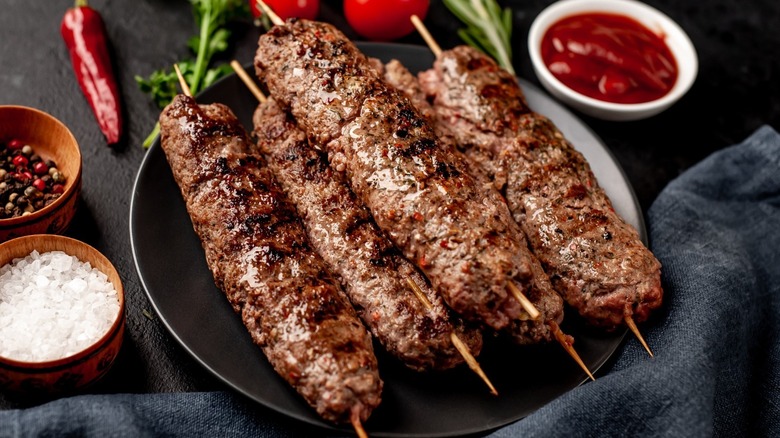Here's Why Kebabs Are Banned In Some Italian Cities
When it comes to dining, Americans are spoiled for choice, with access to pretty much every international and native cuisine. Can you imagine if the government decided to put a ban on anything non-American? That would mean saying goodbye to pizza, fried rice, sushi, and tacos, amongst so many other amazing cuisines. Yet that's exactly what some Italian cities have done.
In a supposed effort to protect Italy's heritage, the government has imposed a controversial rule that all food sold in Venice must be authentically Italian, per The Guardian. That means no new kebab shops or other fast-food establishments will be allowed to set up shop.
Other cities that have started implementing this rule include popular tourist cities such as Florence and Verona, Eater notes. And in addition to the "no foreign foods" rule, many Italian cities have established limits on the imported foods that can be used in restaurants.
Is Italy really protecting its heritage?
Some people believe the reason Italy is implementing the kebab ban has nothing to do with cultural heritage. In 2016, Florence's mayor Dario Nardiella said (via The Local), "One restaurant opens every week in the historic center. Mass-produced foods are replacing our traditional trattorias and historic food shops: We have to put an end to it." A three-year time frame for implementing Florence's plan to use at least 70% local produce was also proposed, per The Local.
While Nardiella's statement might sound reasonable — do you really want a McDonald's in the background of your Florence Cathedral photo? — it's not the only factor at play. Others have suggested there's another, more xenophobic reason for the ban and that the restrictions are being implemented by the same political parties that want to ban and drive out immigrants into the country. In an Eater essay, writer Tove Danovich suggests that these bans are just ways to drive out foreigners from living in the country, arguing that the move has more to do with nationalism than protecting culture.
"The majority of the eateries and small convenience stores impacted by such bans are indeed owned and run by non-ethnic Italians," Gregoria Manzin, a professor of Italian studies at La Trobe University in Australia, told Eater. Still, some Italians may welcome the move, as there's a belief that tourists are overcrowding popular destinations. In 2021, Florence implemented a curfew stopping tourists from walking into popular area at night, per CNN.

